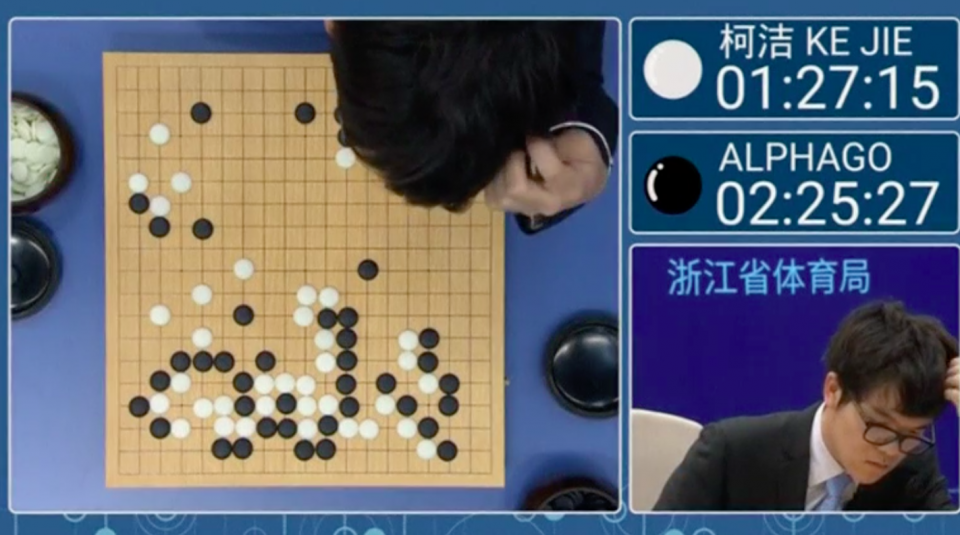
WUZHEN, China (Reuters) – Google’s artificial intelligence program, AlphaGo, beat Chinese Go master Ke Jie for a second time on Thursday (May 25), taking an unassailable 2-0 lead in a best of three series meant to test the limits of computers in taking on humans at complex tasks.
Go is a highly complex board game dating back thousands of years that involves two contestants placing black and white stones on a grid. It is popular in Asian countries and most top-ranked players hail from China, Japan and South Korea.
Ke, the 19-year-old world no. 1, was visibly frustrated, tugging his hair and laying his head on the table during the final moments of the second match against AlphaGo on Thursday.
Following his defeat in the first match of the series on Tuesday, Ke said he would not compete against AI again due to its rapid improvement.
The victory over the world’s top player – which many thought would take decades to achieve – comes after the AI program from Google’s DeepMind unit bested a South Korean Go professional in a similar exhibition match last year.








